Mesotherapy in Georgia
Search and Compare the Best Clinics and Doctors at the Lowest Prices for Mesotherapy in Georgia
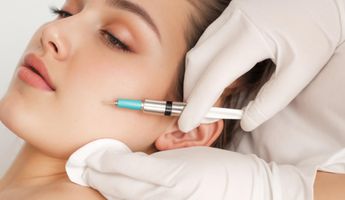
Find the best clinics for Mesotherapy in Georgia
No clinics available
Ukraine offers the best prices Worldwide
Price: $ 20

- Home
- Georgia
Compare Before & After Photos of _procedure_photos.phpMesotherapy
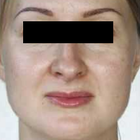
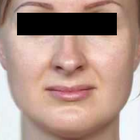
Front view
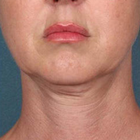
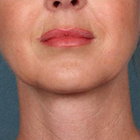
Front view
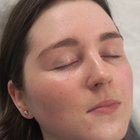
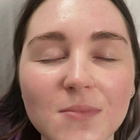
Front view
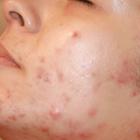
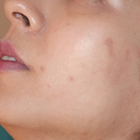
Half-side view
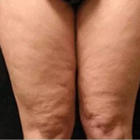
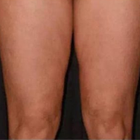
Front view
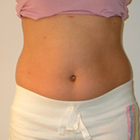
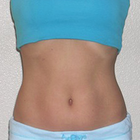
Front view
WHY US?
At Medijump, we're making medical easy. You can search, compare, discuss, and book your medical all in one place. We open the door to the best medical providers worldwide, saving you time and energy along the way, and it's all for FREE, no hidden fees, and no price markups guaranteed. So what are you waiting for?

Free

Best Price

Widest Selection

Risk-Free
What you need to know about Mesotherapy in Georgia
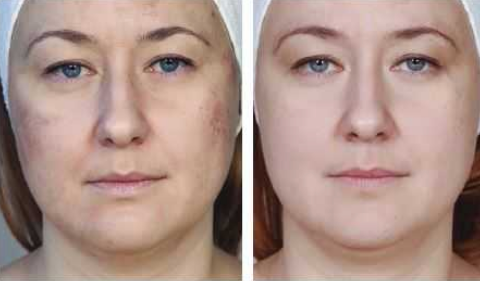
Mesotherapy is a nonsurgical technique that uses micro-injections of vitamins, hormones, enzymes, and plant extracts. Its goal is to rejuvenate and tighten the skin. It is also used to reduce cellulite, lighten pigmented skin, fade wrinkles and line, treat alopecia and encourage hair growth, recontour the body, as well as to remove fat in areas such as the thighs, stomach, buttocks, legs, hips, face, and arms.
Very fine needles are used to deliver a series of injections into the middle layer of the skin. These injections are believed to correct underlying issues, such as inflammation and poor circulation, which cause skin damage.
Before mesotherapy, you may have problems like stubborn fat in certain areas of the body, wrinkles and fine lines in the face, pigmented skin, etc. After the procedure, you’re dull and tired-looking skin will be improved, superficial wrinkles will fade, and excess fat will be reduced. If you undergo the procedure to treat alopecia, you can also expect the procedure to promote hair growth.
What does a Mesotherapy Procedure Involve?
While mesotherapy is nonsurgical and not painful, it can be slightly uncomfortable. Therefore, you may have anesthetic cream applied to your skin to numb the affected area.
Using a special short needle, you will get a series of injections. The injections can be carried out on the face, neck, scalp, chest, hands, and other areas of the body that may have problems you wish to address. There is not a standard formula for the substances injected. The practitioner may use a combination of different substances, including vitamins and minerals, enzymes (such as hyaluronidase and collagenase), herbal extracts, hormones (such as thyroxin and calcitonin), as well as prescription medicines (such as antibiotics and vasodilators). The substances used depends on what you want to treat. For instance, the treatment for cellulite and body fat reduction may use lecithin and isoproterenol.
Each injection can be given at different depths into your skin, ranging between 1 and 4 millimeters, depending on the condition you want to treat. The practitioner may flick their wrist at a rapid pace while injecting, or place the needle into your skin at an angle.
How Long Should I Stay in Georgia for a Mesotherapy Procedure?
Mesotherapy is an outpatient procedure, so you can leave the hospital on the same day. You should be able to leave Georgia right away, but it is recommended to wait at least a day before you travel home because you need to wait for the substances to settle down. However, since you may need a series of treatment to get the desired results, you should expect to return to the clinic or hospital between 3 to 15 times, with 7 to 14 days intervals. Therefore, the length of stay depends on how many sessions you will need until you achieve the result you wish for.
What's the Recovery Time for Mesotherapy Procedures in Georgia?
Mesotherapy has minimal downtime. You may experience a little bruising and swelling after the procedure, but they will subside within 24 hours. Some people are able to return to work and your normal activities on the same day, while others may need to take a day off due to pain and swelling.
What sort of Aftercare is Required for Mesotherapy Procedures in Georgia?
No special aftercare is needed, but the practitioner may give you instructions to follow, which may include what you should do to avoid complications and to reduce swelling and bruising. You can have maintenance treatments 1 – 2 times a year.
To maintain the results, particularly if you have mesotherapy to reduce signs of aging and eliminate excess fat, make sure you exercise regularly, follow a well-balanced diet plan, and limit your alcohol intake.
What's the Success Rate of Mesotherapy Procedures in Georgia?
While there is proof showing that there can be some improvement after mesotherapy, more studies and research are needed to verify the mechanism, safety, and effectiveness of the procedure. Therefore, you should always choose a licensed practitioner with proven track records and experience if you do want to try the procedure.
According to those who practice mesotherapy, the risks tend to be minimal if you go to an experienced and trained practitioner. The side effects and risks of mesotherapy may include pain, nausea, sensitivity, bumps, swelling, bruising, itching, dark patches of the skin, redness, rash, scars, and infection.
Are there Alternatives to Mesotherapy Procedures in Georgia?
The alternative to mesotherapy depends on the condition you want to treat, which may include:
- Injection lipolysis – mesotherapy and injection lipolysis are often thought to be the same procedure, but they are actually two different procedures. Injection lipolysis involves the injection of deoxycholate and phosphatidylcholine into the fat layer under the skin to break up fat.
- Liposuction – is one of the most popular cosmetic treatments to remove excess fat. It uses a suction technique to eliminate fat from specific areas of the body.
- Botox and dermal fillers – both Botox and dermal fillers are nonsurgical treatments to rejuvenate the skin. Botox works by blocking nerve contraction to relax wrinkles, while dermal fillers can improve skin contouring.
Whilst the information presented here has been accurately sourced and verified by a medical professional for its accuracy, it is still advised to consult with your doctor before pursuing a medical treatment at one of the listed medical providers
No Time?
Tell us what you're looking for and we'll reachout to the top clinics all at once
Enquire Now

Popular Procedures in Georgia
Prices Start From $85

Prices Start From $167

Prices Start From $120

Prices Start From $931

Prices Start From $76

Prices Start From $5

Prices Start From $236

Recommended Medical Centers in Georgia for procedures similar to Mesotherapy

- Interpreter services
- Translation service
- Religious facilities
- Medical records transfer
- Medical travel insurance
- Health insurance coordination
- TV in the room
- Safe in the room
- Phone in the room
- Private rooms for patients available

- Interpreter services
- Translation service
- Religious facilities
- Medical records transfer
- Medical travel insurance
- Health insurance coordination
- TV in the room
- Safe in the room
- Phone in the room
- Private rooms for patients available

- Interpreter services
- Translation service
- Religious facilities
- Medical records transfer
- Medical travel insurance
- Health insurance coordination
- TV in the room
- Safe in the room
- Phone in the room
- Private rooms for patients available

- Interpreter services
- Translation service
- Religious facilities
- Medical records transfer
- Medical travel insurance
- Health insurance coordination
- TV in the room
- Safe in the room
- Phone in the room
- Private rooms for patients available
Mesotherapy in and around Georgia
Introduction
Georgia is located in the Caucasus region of Eurasia and it is the most visited country in South Caucasus. From its green valleys and vineyards to its old watchtowers and old churches, this country will never disappoint. Over the last 5 years, Georgia has been visited by an increasing number of medical tourists. These foreign patients, mostly come from Saudi Arabia, Kuwait, Iraq, and Russia, are attracted to Georgia’s high-quality and affordable medical care, as well as the medical center’s first-class services. Most of these patients come for dental treatments, cosmetic surgery, oncology, radiology, liver and kidney transplantation, bone marrow transplantation, orthopedics, infertility treatment, and bariatric surgery.
Popular Cities and Regions in Georgia
Georgia’s vibrant capital, Tbilisi, offers picturesque Old Town, outstanding architecture, dramatic valley setting, and terrific cuisine. Home to 30% of the country’s population, this city is lively and filled with hipster culture and techno scene. One of the most famous monuments in the city is Kartlis Deda, which is a 20-meter tall aluminum symbol of Tbilisi. Another popular city is Batumi, which is the country’s most charming seaside destination. Its synthesis of the mountain and the sea is truly unique and interesting. The most popular attractions in this city, besides its beach, are Batumi Boulevard, Batumi Botanical Garden, Medea Monument, Ortajame Mosque, and Batumi Archeological Museum.
Transport in Georgia
International tourists will arrive in Tbilisi International Airport. It serves flights to and from several cities in Europe, the Middle East, and Asia. There are numerous budget airlines that operate flights from this airport, including IndiGo, Ryanair, and AirAsia X. To travel around the country, domestic flights, buses, and trains are available. To get around major cities, several public transportation options are available. The most common way to get around is by local minibus and buses. Taxis are widely available, but make sure to agree on the fare before getting on.
Visas in Georgia
Georgia allows citizens of 98 countries, including all European Union countries, the US, Japan, and Australia, to stay for a year. Holders of passports issued by 66 countries, such as Bolivia and Egypt, are eligible to apply for e-Visa. The e-Visa is valid for 90 days per 180-day period and 30 days per 120-day period. Citizens of other countries, such as Sudan and Morocco, need to apply for a visa in advance.
Weather in Georgia
Winter in Georgia is usually very cold, with temperatures ranging from 2°C to 6°C, and sometimes dropping below 0°C at night. Summer, from June to August, is pleasantly warm with average temperatures of 20°C to 30°C. However, some coastal areas are humid during this season. Spring and Autumn are delightful as the weather is not too hot, nor too cold. Both of these seasons see frequent rainfalls.
Additional Info
- Local Currency: Lari (GEL) is the official currency of Georgia. 1 USD is equivalent to 2.7 GEL.
- Money & Payments: ATMs are easily available and credit cards are accepted in most restaurants, shops, and hotels. However, if you travel outside of Tbilisi, it’s best to bring plenty of cash. Tipping is expected.
- Local Language: Georgian is the official language. Russian is common, while English is becoming more widespread.
- Local Culture and Religion: The majority of Georgia’s population is Christian. Other religions, including Islam, Judaism, and Bahá'í Faith are present.
- Public holidays: Some of the most celebrated public holidays are New Year’s Day, Orthodox Christmas, Great Saturday, Day of Victory over Fascism, and Independence Day.
Popular Searches
- Plastic Surgery in Thailand
- Dental Implants in Thailand
- Hair Transplant in Thailand
- Breast Augmentation Thailand
- Gastric Sleeve in Thailand
- Gender Reassignment Surgery in Thailand
- Laser Hair Removal in Bangkok
- Botox in Bangkok
- Dermatology in Bangkok
- Breast Augmentation in Bangkok
- Coolsculpting in Bangkok
- Veneers in Turkey
- Hair Transplant in Turkey
- Rhinoplasty in Turkey
- Stem Cell Therapy in Mexico
- Rhinoplasty in Mexico
- Liposuction in Mexico
- Coolsculpting in Tijuana
- Rhinoplasty in Korea
- Scar Removal in Korea
- Gastric Sleeve in Turkey
- Bone Marrow Transplant in India
- Invisalign in Malaysia
- Plastic Surgery in the Dominican Republic
- Tummy Tuck in the Dominican Republic
- Plastic and Cosmetic Surgery in Poland
- Rhinoplasty in Poland
- Hair Implant in Poland
- Dental Implants in Poland
- IVF in Turkey